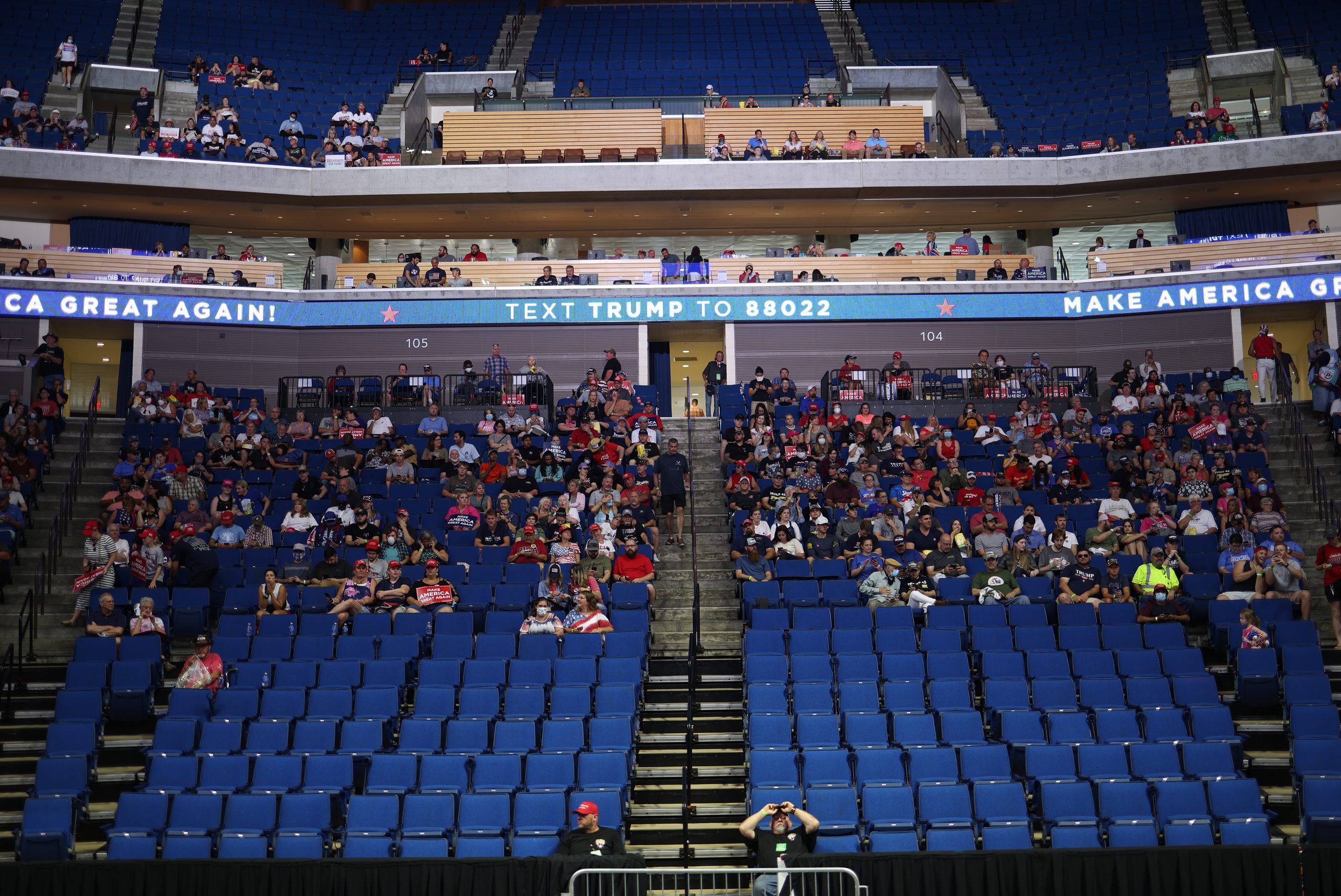
Donald Trump, all but his most diehard sycophants must admit, has just had a bad political week. His former national security adviser John Bolton has written a damning book about the Trump presidency and, despite the Department of Justice’s objections, a judge allowed publication to go ahead.
Excerpts of the book have revealed that, among other things, the president encouraged Xi Jinping, the Chinese leader, to continue building detention camps for Uighur Muslims and wanted desperately to get an Elton John CD to Kim Jong-un, the North Korean dictator.
Trump’s one-time hire is now making the interview rounds sharing his opinion that his former boss is incompetent. Trump is left to tweet furiously about how “washed up” Bolton was when he gave him a job, and what a “wacko” he is, an argument somewhat undermined by the fact that Trump put Bolton in charge of his National Security Council. Is Trump also currently trying to keep his niece from publishing a revealing book? Yes, of course he is.
Then, on 19 June, the Department of Justice bungled the dismissal of the US attorney for the Southern District of New York, Geoffrey Berman. The department said Berman would be stepping down. Berman said he would not be stepping down. The next day, after receiving not one but two justice department letters saying he had to go, Berman said he would resign – but first ensured that his successor would be his deputy, and not the department’s pick.
The attorney general, Bill Barr, said that Trump wanted Berman gone. Trump said he wasn’t involved. We still do not know why, exactly, this comedy of errors occurred, but some have speculated that the gang that couldn’t shoot straight was trying to get rid of Berman either because his office had investigated Michael Cohen, Trump’s former personal lawyer (another past employee against whom the president now rails) or because Berman’s office is now investigating Rudy Giuliani, Trump’s current lawyer.
The irony in all this is that, after 24 hours that drew more attention to that investigation, the US attorney for the Southern District will not be a political crony, but a successor selected by Berman.
Then, on 20 June, Trump held his much-hyped rally in Tulsa, Oklahoma. This being his first rally in months, campaign officials were surely confident when they announced a million people had requested tickets. Trump no doubt expected to fill the 19,000 capacity BOK Centre. And yet, according to Tulsa Fire Department officials, there were only 6,200 people in attendance. Teenagers and TikTok users, along with K-pop fans, reportedly registered for the rally without any intention of attending in order to inflate the registration numbers, but since they weren’t actually issued tickets, that was not the sole reason for the poor turnout.
Trump’s campaign is blaming protesters and the media for the low numbers. It could also be the case that people decided that during a pandemic it was not worth the risk just to watch the president prove he could drink a glass of water with one hand (yes, I’m afraid this happened). But whatever the reason, the president and his press and campaign officials now have to deal with questions about the rally’s low attendance, and also about things that he said during it – for example, that he told his staff to slow down testing for coronavirus so that more cases wouldn’t be discovered. His advisers say he was joking; with over 120,000 dead because of the virus in the US, it is hard to see what the president found funny.
Despite the comically bad week, though, the president is not a joke. Or, if he is, the joke is on the American people. Bolton’s book reveals what we already knew, which is that Trump’s foreign policy is driven by a penchant for strongmen. Bolton reveals some details we did not previously know, which is why it would have been helpful to the country had he testified before Congress during Trump’s impeachment hearings, but instead he decided to save them for The Room Where It Happened.
That Barr’s firing of Berman was messy doesn’t make it beyond the realm of possibility that the Trump administration is going after officials and individuals it sees as disloyal or adversarial. Trump may not have got to scream at tens of thousands of whooping fans in Tulsa, but he still got his racist message broadcasted. He referred to anti-racism protesters as “thugs” and called Covid-19 the “kung flu” – a move that stokes his white base’s energy and endangers the lives of minorities. And he’s now doubling down on the unsubstantiated claim that mail-in voting leads to voter fraud, which is to say that he is already challenging the 2020 election results and norms – trust in the legitimacy of election institutions and the peaceful transfer of power, to take two examples.
His critics may be tempted to laugh at Trump, yelling at a half-full rally that he can walk down a ramp correctly (this, too, happened). They may want to rejoice in his White House’s incompetence. They may smirk that this, finally, was the week that brought down Trump.
Yet the man himself has shown, time and again, that it is not so easy to bring down Trump, not because he is a political genius, but because he has no shame, has one of the country’s two major political parties in his thrall, and is willing to debase the country’s most cherished institutions in order to win re-election. This week – what with the racism and lies about how coronavirus testing works and the tweets about voter fraud – has demonstrated, yet again, that if Trump is going down, he’ll take the rest of us down with him. The joke is on him, except that, because he’s president, that means it is on the rest of us, too.
This article appears in the 24 Jun 2020 issue of the New Statesman, Political football





